For specific info about your Dunedin unit's AED effort click the unit's button above. You can find your 3 digit unit number on the front of your ID card after the letter S.

The Villages Public Safety Department brochure- D0 YOU HAVE AN ADVANCED DIRECTIVE? (Living Will, Health Care Surrogates, Do Not Resuscitate Order)
Download Advanced Directives Brochure
The Villages Public Safety Department brochure- HURRICANE PERSONAL PREPAREDNESS
Download Hurricane Brochure
The Villages Public Safety Department brochure- "DEALING WITH CHEST PAIN ACUTE CORONARY SYNDROME"
Download Dealing With Chest Pains.. Brochure
The Villages Public Safety Department brochure- "STROKE:A little knowledge can help!"
Download Stroke Knowledge Brochure
The Villages Public Safety Department brochure- "Preventing Falls Among Seniors"
Download Preventing Falls BrochureFYI-There is a private Face Book Group for residents of The Village of Dunedin to communicate about sgeneral social items.
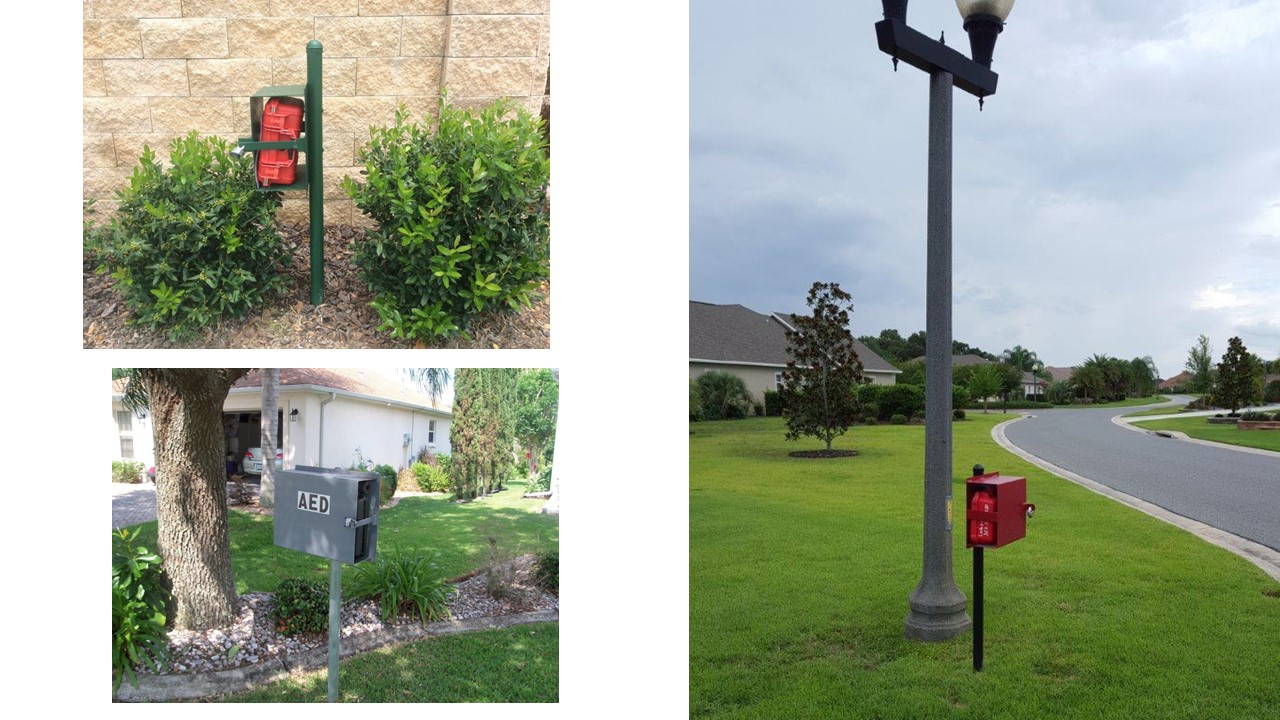
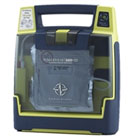
Cardiac Science G3 Defibillator Video
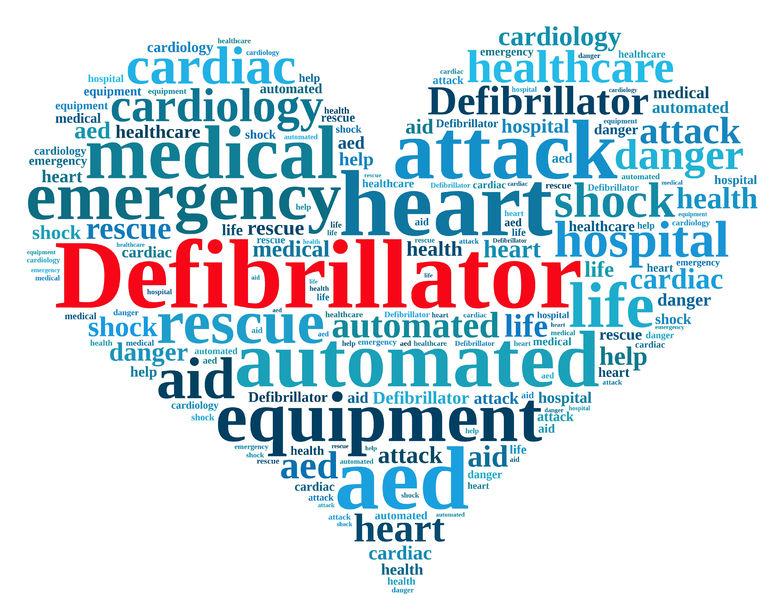
The idea of installing Automatic External Defibrillators (AED) in neighborhoods is catching on. To date, more than 200 groups have purchased AEDs for their neighborhoods within The Villages. The program is under the auspices of The Villages Public Safety Department.
Getting them installed is an all-volunteer, grassroots effort. The first step is getting a neighborhood group together that is interested in purchasing the AEDs. The cost comes to about $2000 per unit including mounting, batteries, and locks, Also, volunteers willing to be trained in the use of the AEDs are needed. A minimum of two responders per unit are required.
The Village of Dunedin is comprised of 10 neighborhoods or units assigned by Sumter County. These are S200, S201, S202, S203, S204, S237, S961, S962, S965 and S968. If you are unsure of your unit number, it is located on your Villages ID card. The U/L number is the first letter of the county in which you live, the unit number and the lot number. To learn how to donate to your unit (neighborhood) select the unit number above or go to the CONTACT US page.
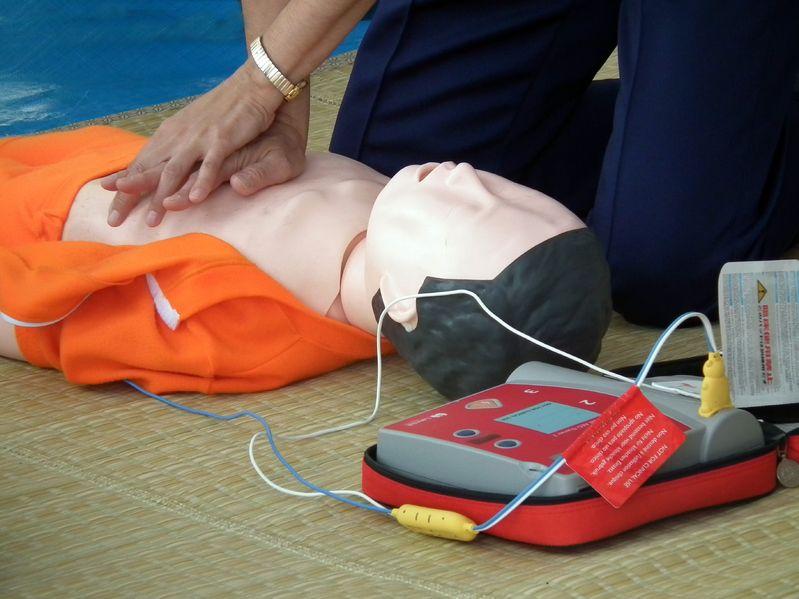
What does an AED unit do?
The AED is a battery-operated device that diagnoses whether a heart needs to be defibrillated (shocked) into resuming a normal rhythm. It gives audible commands and is so simple anyone who understands English can be taught it's use in a few minutes. The AED will only restart or 'shock" a heart that has stopped beating and this "shock", in most cases, will restart the heart beating again.
How would the program work?
According to Sumter County and VCC District 10, Dunedin is made up of 8 units or "neighborhoods". The interested Neighborhood would raise money by donations or fund raisers for their AEDs. The Villages Public Safety will provide CPR training for all of our neighbors who wish to be trained in CPR free of charge. The more “responders” trained the better the neighborhood will be able to handle an emergency situation. In this way, one or more responders would be at home at any time.
Each responder household would have ReadyAlert service. When a cardiac arrest occurs, someone calls 911. The 911 operator, in addition to determining the nature of the emergency and dispatching the medics, will see on their screen that the attack occurred in an “AED Community” and would also send a message via ReadyAlert. While one or more responders would go immediately to the victim's home, others would pass by an AED unit and take it where needed. The units are stored in locked cabinets located on the property of the neighborhood area homes so they are readily available to responders, all of whom will have keys.
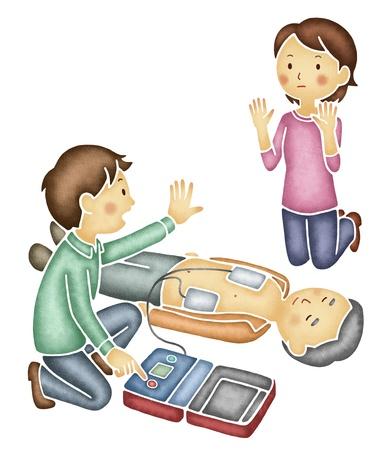
Who would be responsible? ~~The Villages Public Safety Department oversees and assists the program. They will order the equipment under their state contract, train the volunteers and provide continuing updates on training and equipment.The responder volunteers would be responsible to administer CPR and pick up the AED unit on the way to the emergency.
The ReadyAlert program has an annual service fee. The batteries in the AEDs are guaranteed to last 4 years before they need to be replaced. The AED is warranteed for eight years. A bank account would need to be established in which all contributed funds are deposited and from which all invoices would be paid. The account would be set up whereby two signatures would be required to write a check, and an account ledger would be available for auditing, upon request, by any resident in" the neighborhood".
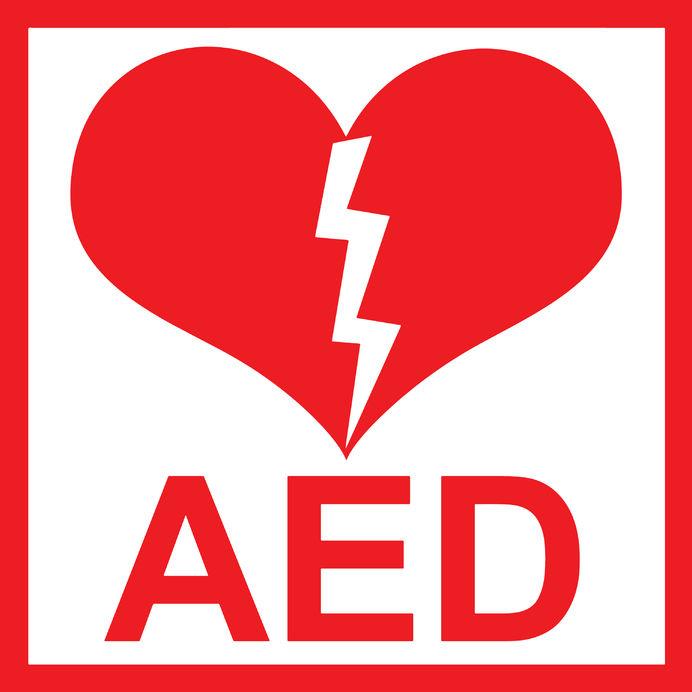
If I want to also be a trained responder do I have any legal liability?
Florida’s Good Samaritan laws protect any lay person who goes to the aid of a person in distress. Since the AED “shocks” only people who are clinically dead (i.e. not breathing) there is no risk of hurting someone. Florida also has two laws that indemnify individuals who use AED’s.
What if some people don't participate?
Because of liability concerns, EVERY HOME in each “designated” neighborhood would be covered in the case of an emergency regardless of whether they contributed or not.
What about mouth to mouth?
Mouth-to-mouth is no longer recommended when doing CPR, except in the case of drowning or a child.
What would the cost be and how would yearly maintenance costs and such be handled?
We don't know yet as we are in the early stages . Neighborhoods typically ask residents to donate $100 per household for the procurement and installation. Yearly maintenance costs could be handled through donations, fundraisers, (ie. 50/50 drawings and such).

